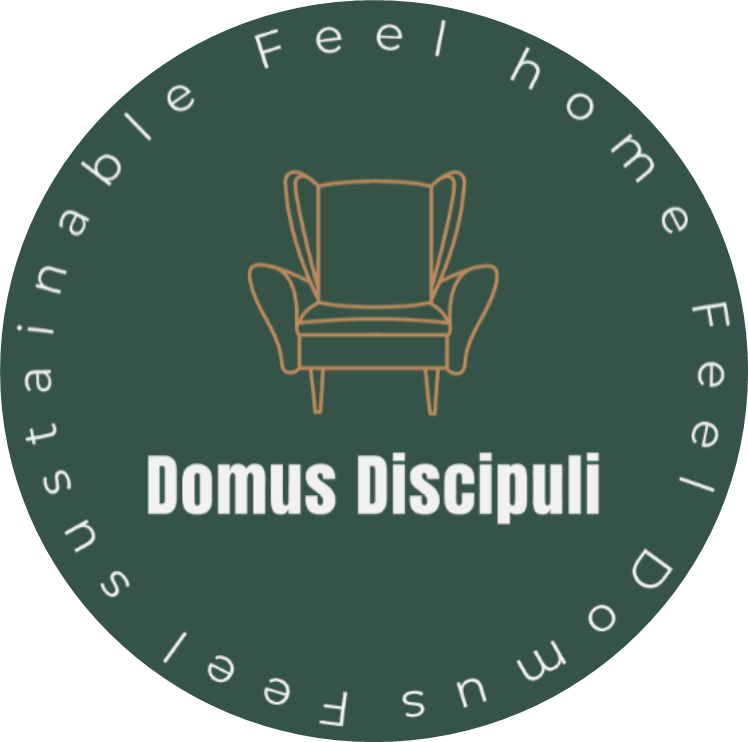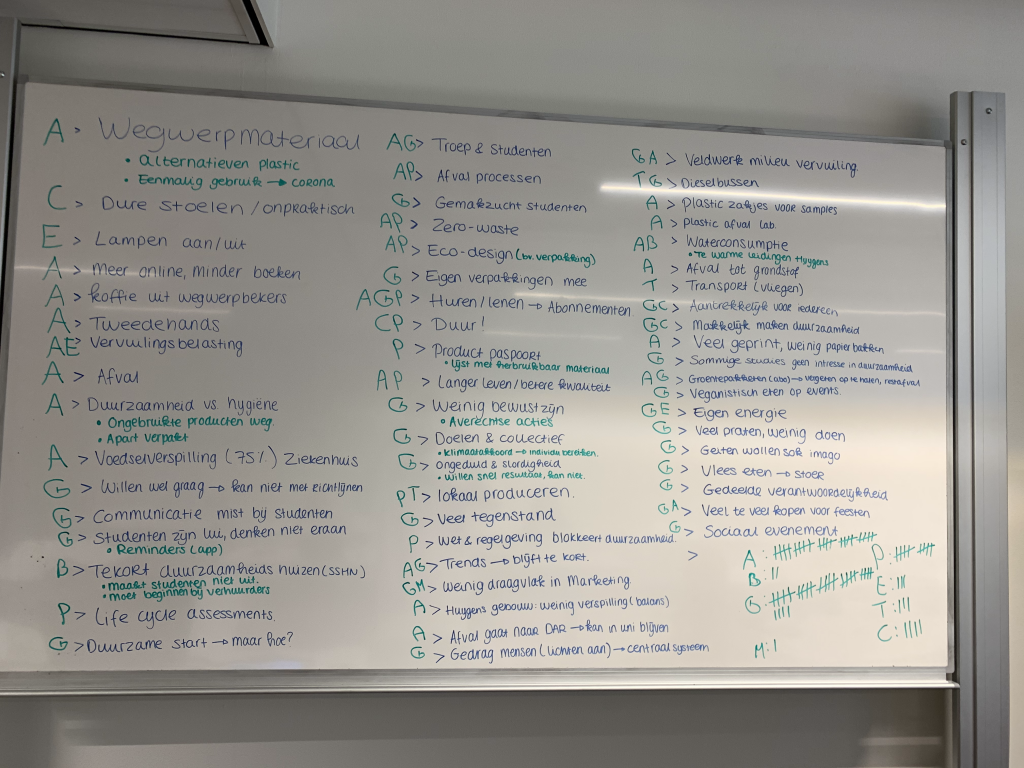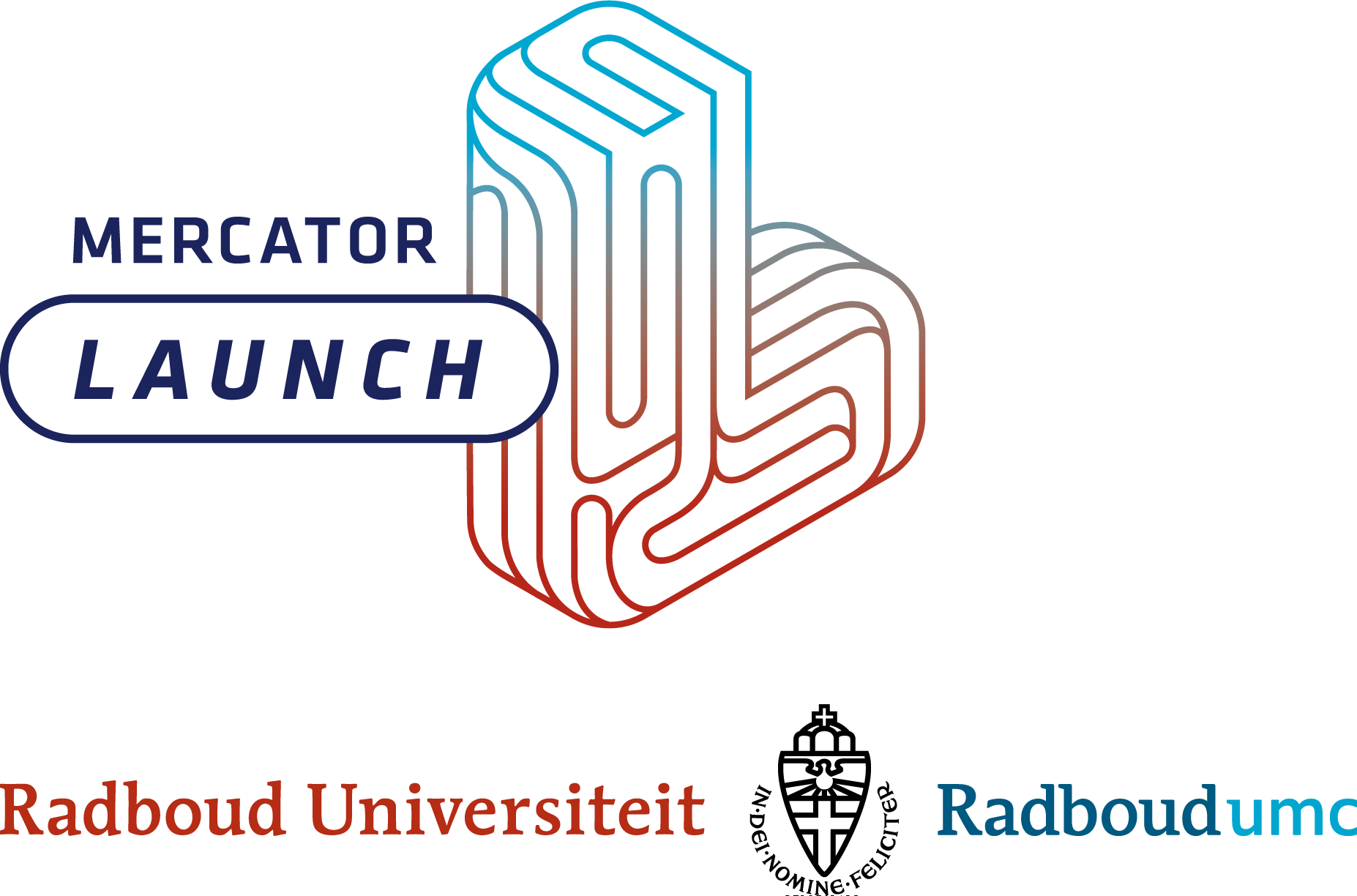
Some already swore by it, others were not such big fans, but last year we all had to start working digitally. Sentences like “you’re muted”, “your camera froze” and “do you hear an echo too?” have turned into classics, almost as input for a non-existent bingo card. At Mercator Launch, we are curious to find out what the benefits and challenges of digital working are according to you!
We sat down with Biology student Lars and International Business Administration student Arlette of startup Domus Discipuli, a company that delivers, assembles and rents out sustainable furniture to international students, and asked them about their experience.
Last September, amidst the corona pandemic, you started your company Domus Discipuli. Tell us more about your startup process in COVID-19 times.
Lars: “We started the course ‘Student Company’ at the beginning of September last year. Student Company is an elective where you develop a business with an interdisciplinary group of students. We were randomly assigned together and only received each other’s email addresses. To kick off our startup idea, we decided to have live team meetings every Friday. Back in September, this was still possible.
Arlette: “Meeting each other in real life gave us the chance to get to know each other. The first two months we still had classes on campus, but from mid-October on we continued working online.”
How did you develop your business idea?
Lars: “We wanted to come up with a solution for housing for international students: most rooms don’t have furniture and neither do the international students. So, we came up with the idea of rentable furniture. For a fixed monthly fee, international students can rent sustainable furniture from us. We will work both with furniture from thrift stores as well as new, sustainably built, furniture. We deliver the furniture, set it up and pick it up again at the end of the rental period. This way, we simultaneously tackle the problem of international students who can’t get rid of their furniture at the end of their stay.”
Arlette: “We chose this idea, because it is something we can all relate to. Many of our fellow students are internationals. We started interviewing people: we asked open questions about their current housing situation, how they experienced coming to The Netherlands and settling down in a new city. We wanted to find out what their challenges were. These interviews helped a lot in getting a clear picture of what was needed.”
How did you make the switch from working offline to online?

Arlette: “When we first had to go online, we thought it would only be for a little while. Making the switch to working digitally went very smoothly: we still had our Friday meetings and everyone was motivated to make it work. We did miss the little things, such as not having a whiteboard we could use and being able to ask each other small questions.”
What challenges did you face with digital working?
Lars: “I found it harder to get my story across online. Someone is less likely to be affected with your enthusiasm and so the quality of your story suffers from it.”
Arlette: “At a certain point, we were at a crossroads because we didn’t know how to continue working on our company in an efficient way. Everyone had tasks, yet none of the tasks got done. Last week, we went to a thrift store with the entire team. Being together in real life really energised us! It is so easy to think in terms of limitations; all the things you cannot do because of corona. To solve this, we sat down one-on-one in breakout rooms to get the creative juices flowing again. And we turned to an online programme, Mural, so we had an online whiteboard for our brainstorms again.”
How do you combine working digitally with being an entrepreneur?
Lars: “When you meet someone in real life, you instantly create a bond. This makes it much more likely for people to listen to your pitch or reach out to you. It seems as if the connections you make online, even though you can make more in one evening, are less powerful than the ones you make offline.”
Your home is now both a work place and a place to relax. How do you create the right balance?
Arlette: “I can separate work and my private life very well. It is a struggle for me to get started every morning. But once I get over that first moment, I am fully motivated and good to go. At the end of the day, I close my laptop and take a walk to mentally close off my work day.”
Lars: “To change locations, I sometimes deliberately sit on my couch when I am working. For instance, for this interview. I need a change of scenery every now and then. Also, I am very lucky that I can go to my internship in Culemborg twice a week, which gives me some variation during the work week. Additionally, I think it’s a good idea to go for a walk during your lunch break. After that, you are ready to go again!”
If you could give one great work-at-home tip, what would it be?
Arlette: “Work with a reward system: if I know I will have a busy day with lots of things, I will treat myself to a nice lunch or allow myself to watch a series during my break. And, very important, make sure that you are not too hard on yourself!”
Lars: “Listen to yourself and organize your working day in a way that suits you. Is it necessary to sit in your chair all day and look at a screen? Or are there meetings you could do while walking? Just do your own thing, create your own momentum!”
Need more tips or want to discuss with ML colleagues?
Contact Mercator Launch!